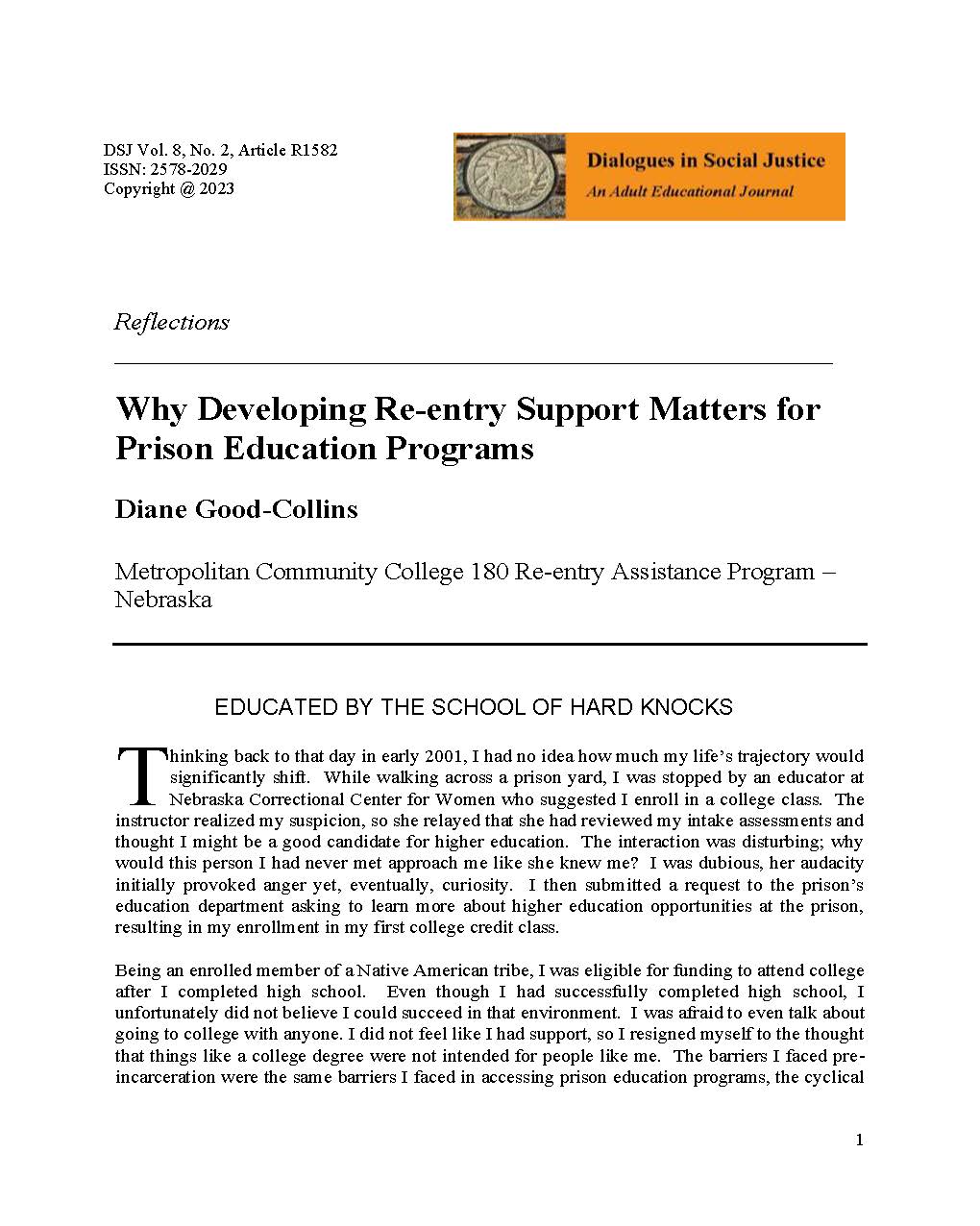Why Developing Re-entry Support Matters for Prison Education Programs
DOI:
https://doi.org/10.55370/dsj.v8i2.1582Abstract
Rates of incarceration in the United States are among the highest in the world. Research suggests, however, that corrections education reduces the likelihood of someone returning to prison and peer support is an effective best practice to assist the justice-impacted population to transition from incarceration to the community.
This reflective essay explores challenges incarcerated persons face in accessing prison education programs, as well as challenges faced by incarcerated and re-entry populations in completing their educational and career goals pre- and post-release. As a practitioner with lived experience, Ms. Good-Collins will describe critical supports for addressing corrections education barriers and meeting the criminogenic needs of individuals transitioning from incarceration to their community. Moreover, we will discuss how to best support students involved with corrections education pre- and post-release through basic needs acquisition, viable access to education and employment services, and ongoing peer support and mentoring.
Finally, we will discuss the logic for higher education institutions currently providing prison education programs to integrate Re-Entry Centers onto their campuses, as well as the importance of staffing them with persons directly impacted by the justice system. Supporting evidence for this essay is gleaned from first-hand experience by the director for the largest on-campus Re-Entry Center in the United States, and its success in effectively supporting corrections education students in transitioning to the community, remaining engaged in the program, and receiving support to achieve their goals. Evidence will include contributions from formerly incarcerated facilitators, coordinators, and administrators of the Re-Entry Center.

Downloads
Published
Issue
Section
License
Authors who publish with this journal agree to the following terms:
a. Authors retain copyright and grant the journal right of first publication with the work simultaneously licensed under a Creative Commons Attribution License that allows others to share the work with an acknowledgement of the work's authorship and initial publication in this journal.
b. Authors are able to enter into separate, additional contractual arrangements for the non-exclusive distribution of the journal's published version of the work (e.g., post it to an institutional repository or publish it in a book), with an acknowledgement of its initial publication in this journal.
c. Authors are permitted and encouraged to post their work online (e.g., in institutional repositories or on their website) prior to and during the submission process, as it can lead to productive exchanges, as well as earlier and greater citation of published work (See The Effect of Open Access).

